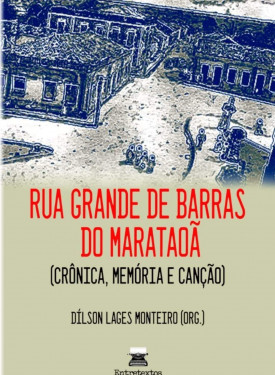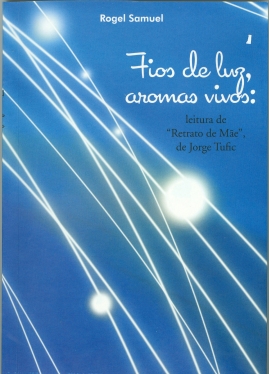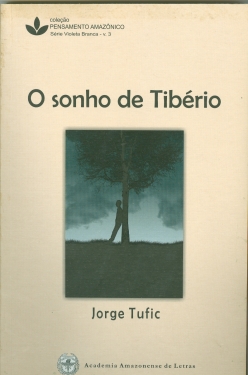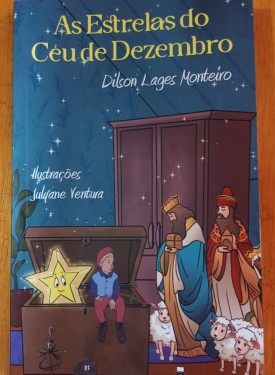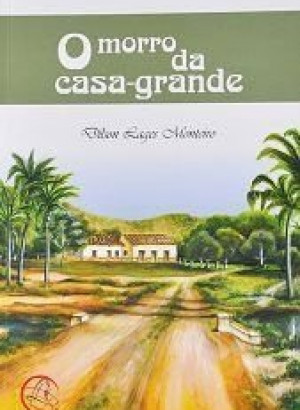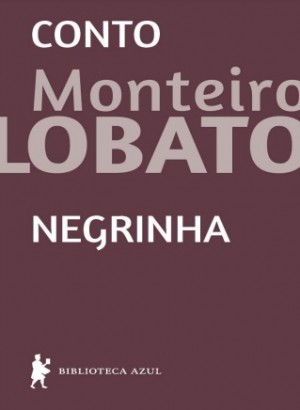THE AMAZON
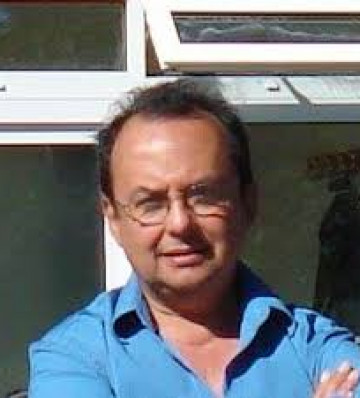 Por Rogel Samuel Em: 29/07/2020, às 06H38
Por Rogel Samuel Em: 29/07/2020, às 06H38
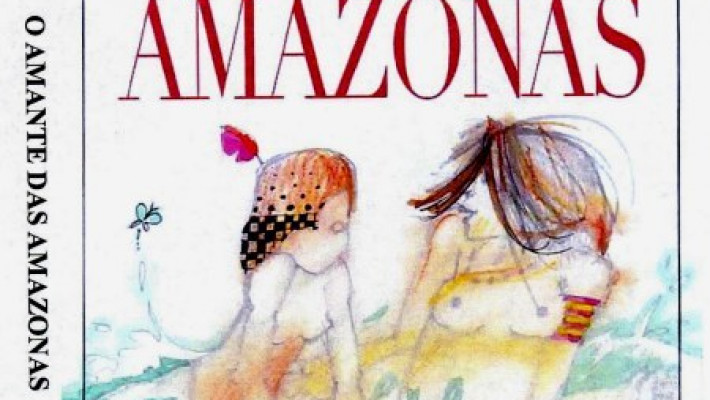
O Amante das Amazonas
by Rogel Samuel
Translation by Christopher Schindler 2020
THE AMAZON
One: The Journey
It was at the crack of dawn on Christmas day 1897 that we said our good-byes by the Gate of Patos in Pernambuco - my mother and I. I never saw her again. The whole town turned out – people I don't want to remember. I left with two changes of clothing in a suitcase tied up and sewn together and a stereoscope to look at views of Manaus, Belém, Paris, London, Vienna and St. Petersburg.
I rode along on a mule in a wool convoy through the Borborema and three days later I was in Timbauba de Mocós, head of the rail line, gathering place for cowboys from Paraíba and Rio Grande do Norte. There I boarded a train to Recife where I found lodgings in the Brum near the Lingueta wharf and stayed for five days before boarding the Alfredo bound for the Amazon. I was still in my teens.
We traveled that day and awoke the following morning at Cabedelo. The dock was filled with anxious people out to meet fighting men from Canudos, Monte Santo e Favela, Travessia and Uauá. Spirits were high but there was also a lot of weeping and wailing. We did not linger there but went on to Natal where migrants fleeing from the Northeast were waiting for a boat to the Amazon country. Besides 500 soldiers of the Pará state police, the entire 4th battalion of infantry returning from the War, without casualties, was already settled in the hold of the ship; so, in Fortaleza, Commandant Bezerra had to have a list read aloud of more than 600 souls done in by the dry spells of the Northeast, part of a steady migration since '79 to the Amazon because it had stopped raining. The ship which not even a single crate of pigs would fit into, accommodated that horde stinking of dust, sweat, manure and urine - hammocks crisscrossing - there was stealing, drinking, rapes, fighting, knifings and death. A father caught a guy by surprise with his daughter in a livestock stall and skinned him; another, drunk, pissed right on the floor where it trickled towards a crowd of people sleeping on the floor; on top of a wicker chicken cage a man defecated, relieving himself under the light of a yellow oil-lamp full of flies. He was a soldier.
I was still in the hold when we passed the lighthouse at Acaraú and stopped in Amarração to get rid of a corpse, a prisoner and two passengers covered with smallpox. But we sailed right past Tutóia and arrived at the port of São Luís where the Alfredo was surrounded by small boats and dinghies transforming the water into a gigantic, floating market. They all climbed aboard: sellers of fried shrimp, sweets and fruit. What a wonderful journey it was! Then untied and sent off, the heavily laden Alfredo continued her run along the coast towards Belém and, as it was growing dark, we slowed down to let on the Lighthouse Bar pilot. When the Alfredo crossed the estuary of the Amazon, it penetrated the great river, pilot at the helm, with binnacles lit, as it was night and covered with stars despite everything.
In Belém I stayed at a hotel called “Two Nations” (one of its owners was from Portugal, the other from Spain). As I had to wait a month for the Barão de Juruá to go up the Amazon, my money started to run out. I slept outdoors to save money for meals and I already owed the skipper for advancing me passage-fare.
Once embarked I would arrive in Manaus without hindrance after six days at eight miles an hour. Two days later we passed Boca do Purus and 5 days later the mouth of the Juruá. We traveled all day and all night. At the mouth of the Juruá the Solimões River is 12 km wide and birds unable to fly far (the trumpeter, curassow, cujubim) could not manage to cross it but died, tired and drowning, at the bottom of waves brushed with yellow from the headwind. In eight days’ travel on the Juruá we arrived at the Tarauacá River and docked at São Felipe, a nice, clean town of forty-five houses. Nine days later we entered the Jordão River from which point the Barão, because of its deep draft, could not continue. So we went on by canoe on the Bom Jardim Bayou. We paddled upriver and came to our final destination, our node point, the terminus, the final boundary, the farthest and innermost place on this terrestrial orb – we finally got to Hell’s Bayou, the limit of the ends of the earth where we encountered the legendary, mythical and vast Manixi rubber plantation wrapped in the weight of its fame and unexpectedness – forty days after leaving Belém, three months and five days since leaving Patos.
Now I didn’t mention that I came to look for my brother Antonio and uncle Genaro who had been sent off to Manixi. No. They had been rubber tappers on the Jantiatuba for the Pixuna rubber plantation, 1,270 miles from the city of Manaus (where years later the Alfredo would shipwreck). They were staying along the Eiru river on a bend, almost a lake, really. From there they left on a barge, boat and canoe to the Gregorio river where they worked for Frenchmen. From there to the Mu, on to Paraná da Arrependida - free tappers that they were - they went up to where they say the son of Euclides da Cunha, who was a deputy, died in a tappers uprising. They traveled on to the Riozinho do Leonel, along the Tejo, Breu, the beautiful Corumbam Bayou – magnificent! – the Hudson, Paraná Pixuna, Moa, Juruá-mirim, up to the Paraná do Ouro Preto, entered the Amônea via the Paraná dos Numas, near the Paraná São João, then along a natural canal without name leading to an unknown place and there they met the boat that went to Hell’s Bayou. It left them in Manixi, in Acre, where they settled down, free tappers of the rubber plantation owner.
I confess (this whole book is a confession of my life) that I felt at that moment that Genaro and Antonio were longing to return to the brush country. The Amazon crisis was getting worse and conditions already were getting bad for tappers – so my brother and uncle fretting and wasting away in order to draw milk from the jungle without profit.
When they saw me they couldn’t grasp what I was doing there. I emerged thin, overwhelmed under my curls of brown hair, forlorn, like an apparition, from a bench under the canopy of a shed (I remember a dark, stormy downpour, night lightning and the whistling of the wind). No, they wouldn't recognize me (since I was a witness to their wretched fate); they were not overjoyed to see me, rather, they resented me. Hadn’t they left, quite young, more than ten years ago with the memory of a kid in bleach-worn diapers? Didn’t they see me as the incarnate killer of their hopes, the bold headline of one more crisis coming to this part of the country upon more bad news, renewing a complaint which already had gone on so many years, scattering the family in all directions (people that I neither knew nor knew if they were still alive) – one went to São Paulo and became a soldier, another with muscular legs left suddenly for Belém returning later via Piauí passing through Serra Grande to Teresina, then via Maranhão to Goiás, a footloose ruffian he was, then climbing the Tocantins to Bahía where he finally disappeared and there was no news of him except that he ended up in the leprosary of Paricatuba (“I have faith in a man who eats and walks armed,” he told us the day he left. “It gives you muscle and guts. With a full stomach, a gun and knife at my side I can take on any kind of wild animal!”). The other, the oldest – ah! – was dying of hunger, exhausted, worn out, because he wouldn’t leave his old mother (she loved him most of all. She died two years after I left. She despised me; I know she hated me, cursed me on her deathbed). And our sister, pretty, captivating, the youngest - her husband left to work as a drover in Vila de Santa Rita to earn something to escape the hunger of the world while the brush country was peeling with drought; yes, our whole family, screwed over and broken, as I later saw, left me all by myself in the fear of God.
They didn't say a word. They were withdrawn and I just sat there in the dark for a long while brushing off the rain from my tied-up suitcase, crying in desertion and solitude. I wanted to leave and not be there. I wished I hadn’t come. But I had no way back. And I never returned.
Slowly from the next day on, I began to do the necessities: cooking, cleaning the hut, fishing, gathering fruit so I wouldn’t go hungry. And since I now owed the boss (whom I didn’t know), I had to start running, a prisoner of odd jobs, going along the trappers’ path with a small tin cup, doing the smoke-curing with aricury, chips of cow tree and acabu, making my own rubber balls. The milk turned black at my touch. Farming and rubber tapping don’t mix? Produce what you eat? They told me nothing, taught me nothing, like they didn’t know I was there. And they didn’t talk to each other. They had become dumb animals – I don’t think they knew how to talk. They returned at dark, like worn-out monkeys, mute and dirty, they ate and they slept, stinking. At dawn, they were back on the trail; they moved mechanically as if by some internal wire contraption. I don’t know where or for what.
But I learned to cut the trees, cure the latex, pile up rubber balls with the pervasive sound of oily bubbling from the nudging dark waters of Hell’s Bayou (which I can still hear to this day and will keep hearing until the hour of my death in this middle of nowhere).
Two: The Palácio
This narrative - a parody of an historical novel which defines my long overdue confession with sufficient accuracy - will reveal to you the quite surprising life of Ribamar de Sousa, the adolescent that I was, emerging on an unexpected day of the Amazon winter, to an extremely percussive ostinato of dense rain under the improvisatory direction of an imaginary score, in tune with the surroundings, composed of polytonal chords, as I was sitting on a wooden bench in a thatched lean-to, to the accompaniment in 5/4 time of Hell's Bayou, which flows into the Bom Jardim Bayou, which flows into the Rio Jordão, which flows into the Rio Tarauacá, which flows into the Rio Juruá, a tributary of the upper Amazon River (the so-called Solimões), to which we were returning.
I remember how, on Hell's Bayou, yet lower on the farthest line that marked the horizon on that late afternoon – there was a golden diagonal and a storm approaching on the other side of the horizon – the handsome art nouveau form of the Palácio Maxini (the mansion's name), seat of the rubber plantation and residence of Pierre Bataillon, appeared magnificently before my eyes like an outline of a scene from a detailed historical dream; we were returning then in search of that forbidden past, since we arrived at the end of the era when that mansion appeared dazzling in its multiple reflections of crystal baubles, window and door transoms transformed into bright plates of shining, vivid and delirious gold, a wild and vibrant gold, of striking brilliance, golden and frenzied, illusory and delirious, out of this world and unimaginable, brought into being by the early accumulation of nearly a century of exploration, investment and endeavor of layer upon layer of heterogeneous levels of history, in a creation of the entire sweep of the modern world, confined here, circumscribed here, centered here in permanent dependence on itself and of its lingering isolation and anachronistic testimony.
We were returning to the elaboration of our luxurious past; we arrived unconscious and fatigued in that golden, dark late afternoon,, in which the mansion in its singularity possessed all the details of an appearance of dazzling light. The Palácio (as this structure was known, later went into decline after the rubber bust, a ruin and dead), a transparent and unexpected mansion awaited us in the tranquility of its points and angles, with which it beckoned and came to meet us, with its immortal exaltation, above sheets of dark and primitive waters originating from the life of the world: on the surfaces of Hell's Bayou glided the riches of the world's high altars, from the frontier, inevitable, indeterminate, virgin trees. Lost, vacant, undemarcated... So, because all its strongest codification of a building, a two-story mansion with a cellar (since abandoned), of art nouveau style, looking towards a return to civilization, surrounded by exquisite fencing of gracefully shaped iron, convulsive and violent scrolls of tendrils of elegant and effeminate contours, disguised, unseemly, decorating the twisting and bombastic marble staircase, dark and in full fruition of reproduction European villas. Its majesty was something felt even at a distance, as from afar it made its grandeur and distinction known; a concern for taking for itself terraces and balconies that project into the air...- but all that is in discontinuous ruins, all that is no longer here today, and this description corresponds to what the mansion was many years ago in my youth and the proliferation of lost memory, ah, yes, because I am old but not senile, and the sources of wealth are still there in the middle of the forest: cultivation and substance to confirm their existence and development. I see clearly the twisted body of that escapist nineteenth century (since pillaged) edifice on its height of terra firma, planted in relation to a truth of this end of the earth, to the account of rivers of blood and scandal of tons of pounds sterling of glittering rubber gold – oh, gods!, that luxury existed, unacknowledged or supposed, misfortune and extortion, waste of the pleasures of wealth at the seat of the Manixi plantation, far away, at the farthest reach, remote from everything, remote from itself, a distance of almost 2,000 miles from Manaus …
I do not exist in the present, but in another epoch. I am from the time of a primitive, archaic, sumptuous capitalism, interlaced with gold and precious stones, a time out of fashion now when the Palácio was an image in search of its deeper nature. There, a music room was arranged mainly for listening to Beethoven, with a Pleyel grand piano, the showcase where Pierre Bataillon exhibited his collection of violins (the Guarnerius, the Bergonzi, the Klotz, the Vuillaume), prints of Viotti, Baillot, David, Kreutzer, Vieuxtemps, Joachim and the death mask of Beethoven with a bronze laurel wreath by Stiasny. The library where someone read aloud verses of Lamartine. Rooms and rooms asking “why?”, salons, galleries and apartments interconnected by doors which opened into private halls and passageways and which closed in on themselves to the sound of Pierre Bataillon at the piano in dialogue with Frei Lothar's violin in a Mozart sonata, like someone fixing one's attention within, with a mortal, agile and terrible energy which was expressed in the painted stucco walls, by an iridescence of greenish and dark gold, in the interlaced rhythms of branches and foliage, of a hallucinated and Japanese vegetation which rose in these shapes toward the ceiling reflected many times over in beveled mirrors and in the crystal prisms of chandeliers to evoke the remembrance of exotic pleasures. Yes, I am an old man of another century and there I lived all those years, observing, learning and absorbing, within the magic circle and around that population of antique objects and furniture that portrayed devouring monsters: like the vision of sexual fantasies in the decoration of the Venetian commode; the Boulle armoire and its hunting scenes with defeated wild boars and dogs chewing on bloodied birds shot down by the Duc de Chartres and other aristocrats on horseback dressed in the idiocy of red trousers and black boots; in the strict silence of the English study, in the dynamics and prostituted morphology of the Delanois divan; in the unity and elliptical variations of the settee - and in the vines, irises, thistles, diverse stylized insects, incorporating themselves in the furniture and the lines of the French panels in a neo-rococo delirium such as nature never intended: statues on lambrequins, eclectic beads and rosettes, urns on the cymas of the balconies symbolizing energy, the ontology and desire of capitalism devouring everything, spending everything, producing everything, preserving everything, needing and appropriating everything, spilling over and miscarrying into madness, misery and death – caryatids, capitals, forest foliage – a seemingly small Pierre Bataillon ate and consumed and threw away his entire immense fortune in the taste of his furnishings, sumptuous, amassed and useless, in a process of cupidinous and grasping schizophrenia, by the suction of his refined, dehumanized mouth, to put an end to the surplus of his surprising profits, in autophagic pleasure of the minimum daily expenditure of his miraculous capital, bloody and luxuriant, by transplanting to that place, at whatever cost, the whole spirit of European humanism that was transported in chartered and laded ships, to the confusion of his beautiful, exquisitely crafted but useless objects, of a vain, futile art, suicidal because unproductive, insatiable and banal. Such is the irony of these efforts for putting gold filaments on the horizon and making the impression of distance more distinct, to defile the pestiferous history with gold – in illness, madness, deaths, impuned and imperial crimes (various native peoples disappeared), in obedience to criteria of an odd capitalistic aesthetic, in the emptiness and inocuousness of a coquettish, amoral and modern paganism.





